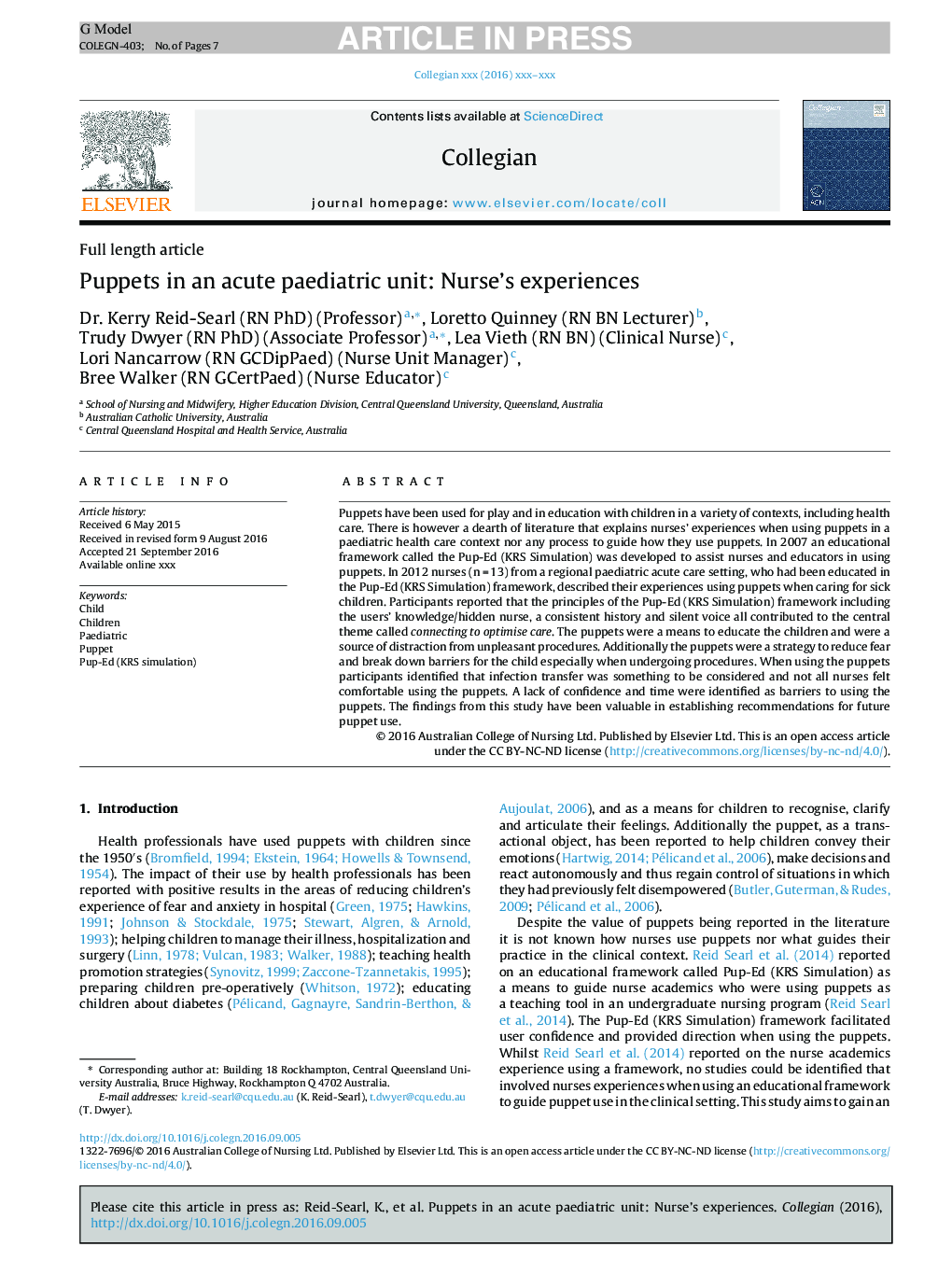| Article ID | Journal | Published Year | Pages | File Type |
|---|---|---|---|---|
| 5567667 | Collegian | 2017 | 7 Pages |
Abstract
Puppets have been used for play and in education with children in a variety of contexts, including health care. There is however a dearth of literature that explains nurses' experiences when using puppets in a paediatric health care context nor any process to guide how they use puppets. In 2007 an educational framework called the Pup-Ed (KRS Simulation) was developed to assist nurses and educators in using puppets. In 2012 nurses (n = 13) from a regional paediatric acute care setting, who had been educated in the Pup-Ed (KRS Simulation) framework, described their experiences using puppets when caring for sick children. Participants reported that the principles of the Pup-Ed (KRS Simulation) framework including the users' knowledge/hidden nurse, a consistent history and silent voice all contributed to the central theme called connecting to optimise care. The puppets were a means to educate the children and were a source of distraction from unpleasant procedures. Additionally the puppets were a strategy to reduce fear and break down barriers for the child especially when undergoing procedures. When using the puppets participants identified that infection transfer was something to be considered and not all nurses felt comfortable using the puppets. A lack of confidence and time were identified as barriers to using the puppets. The findings from this study have been valuable in establishing recommendations for future puppet use.
Keywords
Related Topics
Health Sciences
Medicine and Dentistry
Public Health and Health Policy
Authors
Dr. (Professor), Loretto (RN BN Lecturer), Trudy (Associate Professor), Lea (Clinical Nurse), Lori (Nurse Unit Manager), Bree (Nurse Educator),
